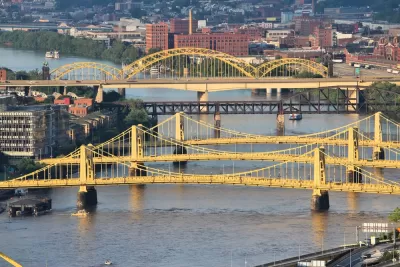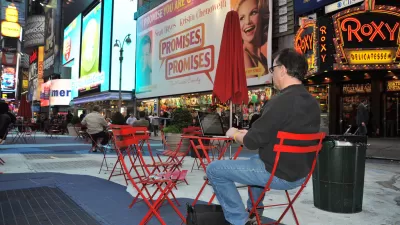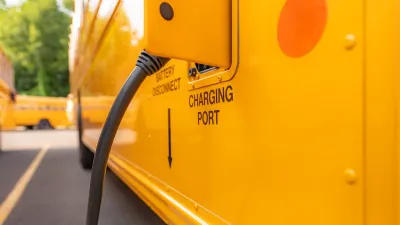Think Columbus, Ohio and Pittsburgh, Pennsylvania.

"It had to happen, but why is it happening now? Secondary tech hubs – outside the orbit of Silicon Valley and New York – are showing undeniable momentum this year," reports Conor Sen.
Sen writes the story after returning from a tour of Columbus, Ohio and Pittsburgh, Pennsylvania with "venture capitalists and team members from the early-stage venture capital firm Bloomberg Beta" for the third round of the Comeback Cities Tour.
A "confluence of forces" has created this momentum for secondary tech cities, according to Sen, such as closing logistical gaps, the spread of urban amenities (the "Brooklyn-ization of America," as described by Sen), lower costs in non-coastal cities, and signals from tech giants.
"As a result, founders and investors are growing more comfortable with companies being founded and scaled outside of traditional hubs," writes Sen.
"It's not clear right now just how transformative or long-lasting this trend could be for secondary hubs. Business people in both cities talked about challenges they share being in nontraditional tech cities: finding workers with startup rather than traditional corporate experience, founders still being somewhat reliant on getting investors in San Francisco or New York to buy into their stories rather than being able to tap local capital, and a lack of successful startup exits or IPOs that would get the local community to have more confidence in startup ecosystems."
FULL STORY: The Year That Big Tech Hubs Got Some Competition

Study: Maui’s Plan to Convert Vacation Rentals to Long-Term Housing Could Cause Nearly $1 Billion Economic Loss
The plan would reduce visitor accommodation by 25,% resulting in 1,900 jobs lost.

North Texas Transit Leaders Tout Benefits of TOD for Growing Region
At a summit focused on transit-oriented development, policymakers discussed how North Texas’ expanded light rail system can serve as a tool for economic growth.

Using Old Oil and Gas Wells for Green Energy Storage
Penn State researchers have found that repurposing abandoned oil and gas wells for geothermal-assisted compressed-air energy storage can boost efficiency, reduce environmental risks, and support clean energy and job transitions.

San Mateo Formally Opposes Freeway Project
The city council will send a letter to Caltrans urging the agency to reconsider a plan to expand the 101 through the city of San Mateo.

A Bronx Community Fights to Have its Voice Heard
After organizing and giving input for decades, the community around the Kingsbridge Armory might actually see it redeveloped — and they want to continue to have a say in how it goes.

Houston Mayor Promises Dedicated Austin Street Bike Lane After Public Backlash
Although the one-way bike lane won’t be protected by physical barriers, the proposal is an improvement over the mayor’s initial plan to only include sharrows on the Austin Street project.
Urban Design for Planners 1: Software Tools
This six-course series explores essential urban design concepts using open source software and equips planners with the tools they need to participate fully in the urban design process.
Planning for Universal Design
Learn the tools for implementing Universal Design in planning regulations.
Borough of Carlisle
Caltrans
Heyer Gruel & Associates PA
Institute for Housing and Urban Development Studies (IHS)
City of Grandview
Harvard GSD Executive Education
Toledo-Lucas County Plan Commissions
Salt Lake City
NYU Wagner Graduate School of Public Service




























